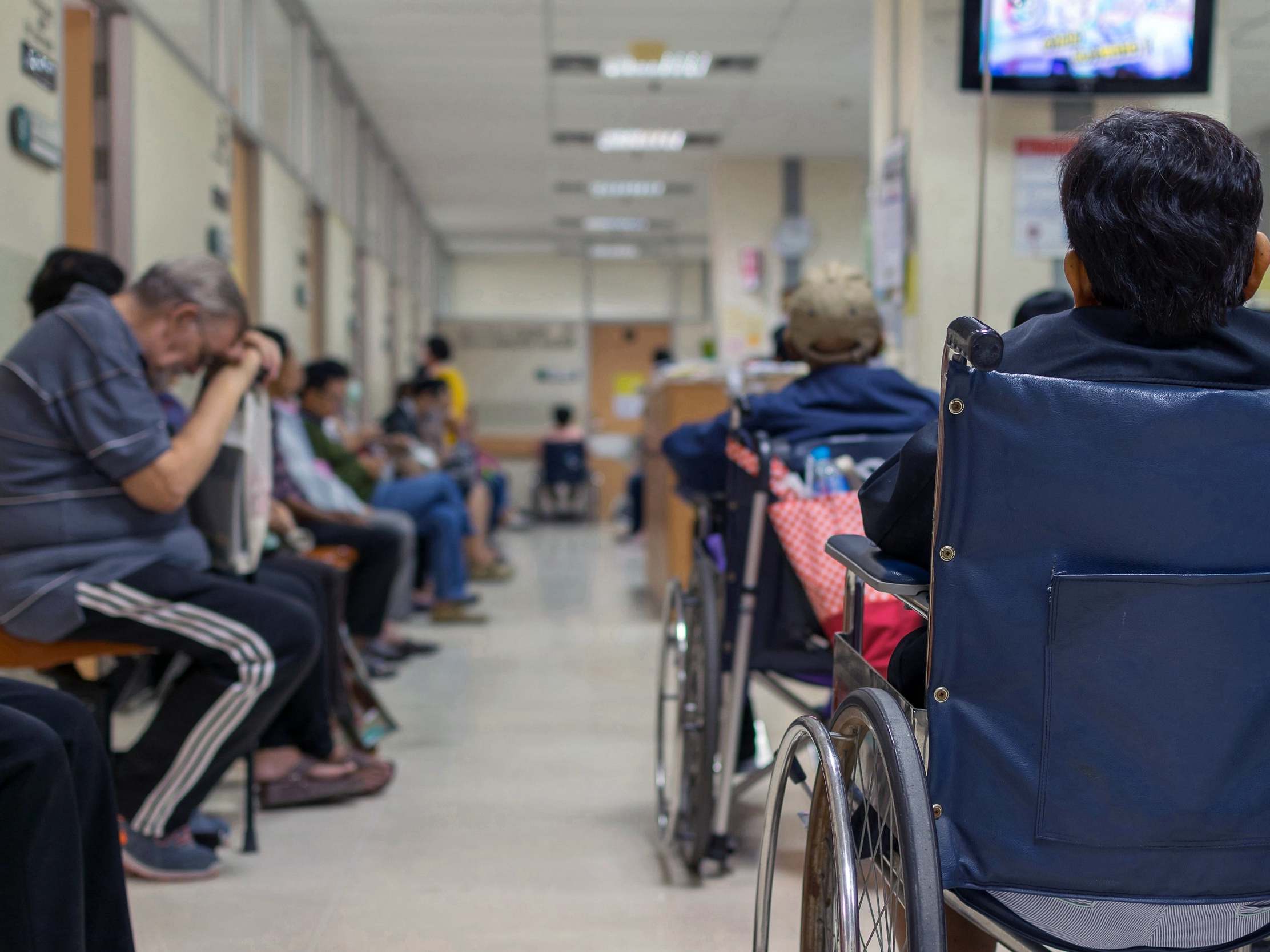Coronavirus: 'Highly likely' that NHS will be overrun by Covid-19, EU health authorities warn
EU recommends countries go on lockdown as Boris Johnson continues to resist pandemic measures found abroad

Your support helps us to tell the story
From reproductive rights to climate change to Big Tech, The Independent is on the ground when the story is developing. Whether it's investigating the financials of Elon Musk's pro-Trump PAC or producing our latest documentary, 'The A Word', which shines a light on the American women fighting for reproductive rights, we know how important it is to parse out the facts from the messaging.
At such a critical moment in US history, we need reporters on the ground. Your donation allows us to keep sending journalists to speak to both sides of the story.
The Independent is trusted by Americans across the entire political spectrum. And unlike many other quality news outlets, we choose not to lock Americans out of our reporting and analysis with paywalls. We believe quality journalism should be available to everyone, paid for by those who can afford it.
Your support makes all the difference.There is a "high" likelihood that healthcare systems including Britain's NHS will not be able to cope with coronavirus in the coming weeks, EU health authorities have warned.
The European Centre for Disease Prevention and Control (ECDC) called for "a rapid shift from a containment to a mitigation approach" – as countries across the EU impose restrictions on gatherings and close schools and workplaces.
The EU agency, which was established shortly after the 2003 SARS outbreak to help coordinate the continent's response to infectious diseases, said governments should urgently bring in the kind of "social distancing measures" resisted by Boris Johnson.
"The risk of healthcare system capacity being exceeded in the EU/EEA and the UK in the coming weeks is considered high," the organisation said in its latest update released on Thursday afternoon.
"The impact and risk assessment on health system capacity can be mediated by the application of effective infection prevention and control and surge capacity measures."
The agency, whose remit continues to include the UK during the Brexit transition period, also warned that "the EU/EEA and the UK are quickly moving toward a scenario of sustained community transmission of COVID-19".
It continued: "A rapid shift from a containment to a mitigation approach is required, as the rapid increase in cases, that is anticipated in the coming days to few weeks may not provide decision makers and hospitals enough time to realise, accept and adapt their response accordingly if not implemented ahead of time."
In its report, the organisation said that "the following public health measures to mitigate the impact of the pandemic are necessary".
Social distancing measures should be implemented early in order to mitigate the impact of the epidemic and to delay the epidemic peak
"Social distancing measures should be implemented early in order to mitigate the impact of the epidemic and to delay the epidemic peak," the organisation said.
"This can interrupt human-to-human transmission chains, prevent further spread, reduce the intensity of the epidemic and slow down the increase in cases, while allowing healthcare systems to prepare and cope with an increased influx of patients."
The agency also said the measures should include "the immediate isolation of symptomatic persons suspected or confirmed to be infected with COVID-19" as well as "the suspension of mass gatherings, taking into consideration the size of the event, the density of participants and if the event is in a confined indoor environment" and "social distancing measures at workplaces (for example teleworking, suspension of meetings, cancellation of non-essential travel)".
It also recommended "measures in and closure of schools and a "cordon sanitaire of residential areas with high levels of community transmission".
The UK government has resisted rolling out such measures, which are increasingly being found in other EU countries. Ireland was the latest country to go on lockdown on Thursday, closing schools and telling its workforce to stay at home where possible.
Join our commenting forum
Join thought-provoking conversations, follow other Independent readers and see their replies
Comments